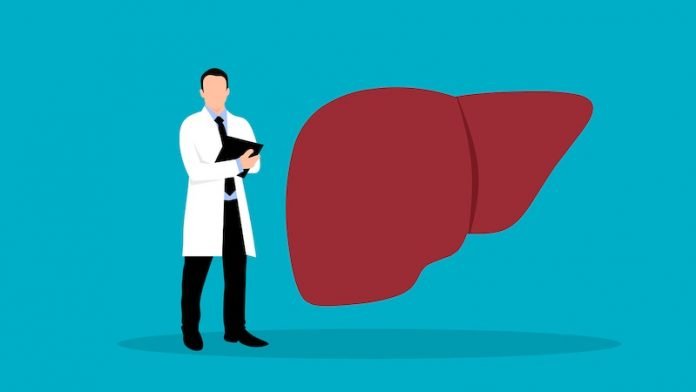
A study from Yale and elsewhere found a link between an immune system factor and the promotion of blood vessel damage that may explain liver injury in people with COVID-19.
The finding can help to inform future research efforts to prevent and combat such liver damage.
The study is published in The Journal of Hepatology and was conducted by Matthew J McConnell et al.
People with COVID-19 commonly have liver injury. This injury appears to be linked to vascular (blood vessel) damage, but the underlying mechanisms have been elusive.
A hint came from the observation that people with COVID-19 have elevated levels of an immune system factor called IL-6 in their blood, along with factors that either promote damage to cells lining blood vessels and/or enhance blood clot formation.
This suggested that COVID-19-induced liver injury could be mediated through cells called liver sinusoidal endothelial cells, or LSECs, highly specialized cells that line the tiniest blood vessels in the liver and are critical to proper liver function and health.
LSECs are both prime targets for damage and producers of factors involved in inflammation and clotting—production that could be stimulated by IL-6.
In support of this hypothesis, researchers found that among people hospitalized with COVID-19, higher levels of a liver injury biomarker correlated with higher levels of factors that promote blood clotting—including one produced primarily by LSECs, called factor VIII—as well as biomarkers of inflammation and IL-6.
Comparing liver specimens from deceased donors at a microscopic level, the scientists found a similar pattern:
Among donors who had had COVID-19, those who had higher levels of the liver injury biomarker showed a greater abundance of cells and factors involved in injury, inflammation, and clotting in the vicinity of LSECs.
This finding also tracked with higher levels of IL-6, again suggesting a role for this immune system factor.
To test the possible role of IL-6 directly, the researchers treated laboratory samples of human LSECs with a complex of IL-6 and a soluble form of its receptor protein.
They found that IL-6-treated LSECs produced several of the proinflammatory and clotting factors seen in people with COVID-19 and liver injury—a response that could be blocked by further treating the cells with inhibitors of this IL-6 signaling pathway.
Together with other experimental results, these study findings provide evidence that liver injury in COVID-19 may be mediated by IL-6 acting on LSECs, a mechanism that could be targeted therapeutically to prevent and effectively treat liver damage.
Sign up for our newsletter for more information about this topic.
If you care about COVID, please read studies about new treatment option for COVID-19, and how to prevent liver disease with diet and lifestyle changes.
For more information about COVID, please see recent studies about a universal antibody therapy for all COVID-19 variants, and results showing this new oral drug may prevent death from COVID-19.
Copyright © 2022 Knowridge Science Report. All rights reserved.



